Gay asylum seeker who arrived in UK on a dinghy boat pleads with government to show ‘mercy’
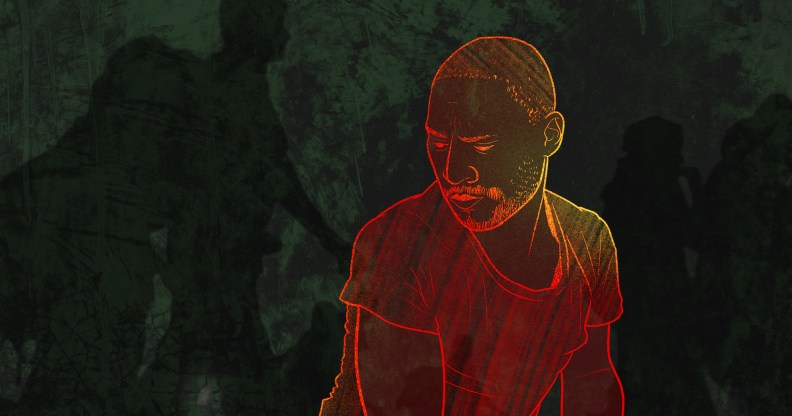
Michael, a gay asylum seeker, travelled to the UK on a dinghy boat. (PinkNews)
As the government pursues its reviled Illegal Migration Bill, a gay man seeking asylum after arriving in the UK on a small boat is begging for compassion.
Michael fled his home country after he was caught having sex with another man in the small village he grew up in.
Weeks later, smugglers brought him to the UK on a small boat – one of the routes deemed “illegal” by the government.
Right now, Michael is waiting for the Home Office to decide whether or not he can stay in the UK – and the government’s Illegal Migration Bill is making him fear for the future.
The bill would see all adults who arrive to the UK via the Channel or in the back of a lorry detained for 28 days. They would then be sent back to their country of origin or to a third country like Rwanda.
Families with children could also be detained and deported.
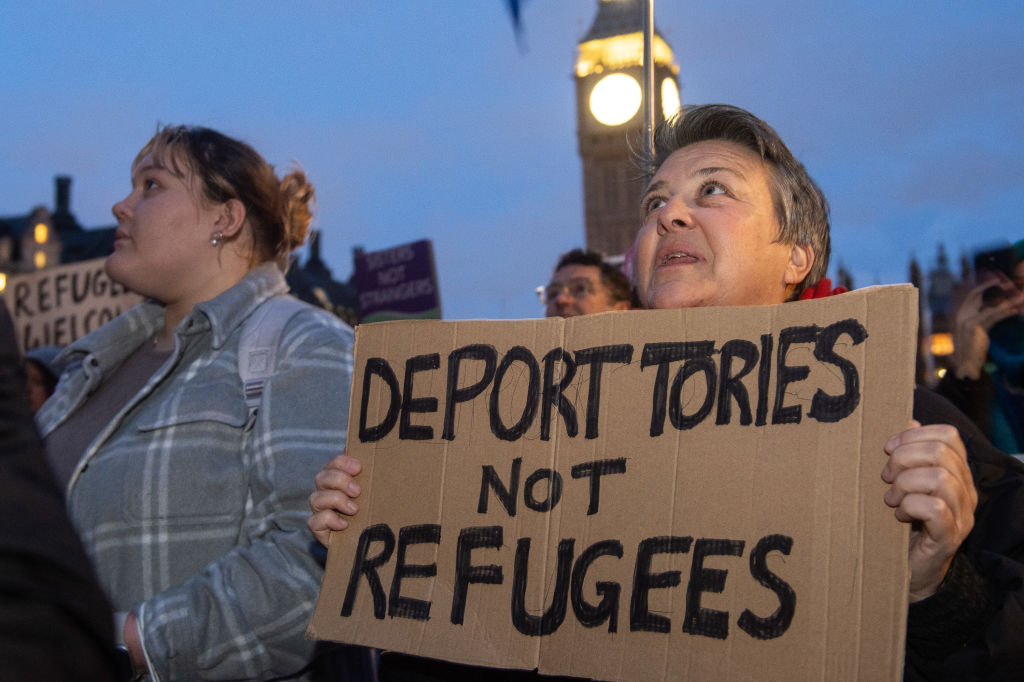
The bill’s ultimate goal is to “stop the boats”, as a slogan at a now infamous press conference pointedly made clear. But for many, there is no other option.
Michael was forced to flee, fearing for his life
Michael comes from an African country – which PinkNews is withholding to protect his identity – where homosexuality is illegal and public attitudes are not kind.
After he and his friend were caught having sex, they were hauled before village elders.
Later that day, the pair took whatever money they could get their hands on from family and left their homes, knowing they could never return.
Together, they travelled to their country’s capital city. There, they went their separate ways.
After travelling to Nigeria, Michael made contact with smugglers who promised they would get him to the UK for a fee. At first he was taken to Morocco, then by boat to Spain, then to Italy, and finally to France.
It was there that smugglers told him he would have to pay more money to get to the UK.
“Because I didn’t have money anymore, I was forced into prostitution,” Michael tells PinkNews.
“When I was eventually told it was my turn to travel, I was put in a dinghy boat with some of the smugglers. They said that if we were caught and any of us mentioned they were smugglers, they would kill us if they ever found us.”
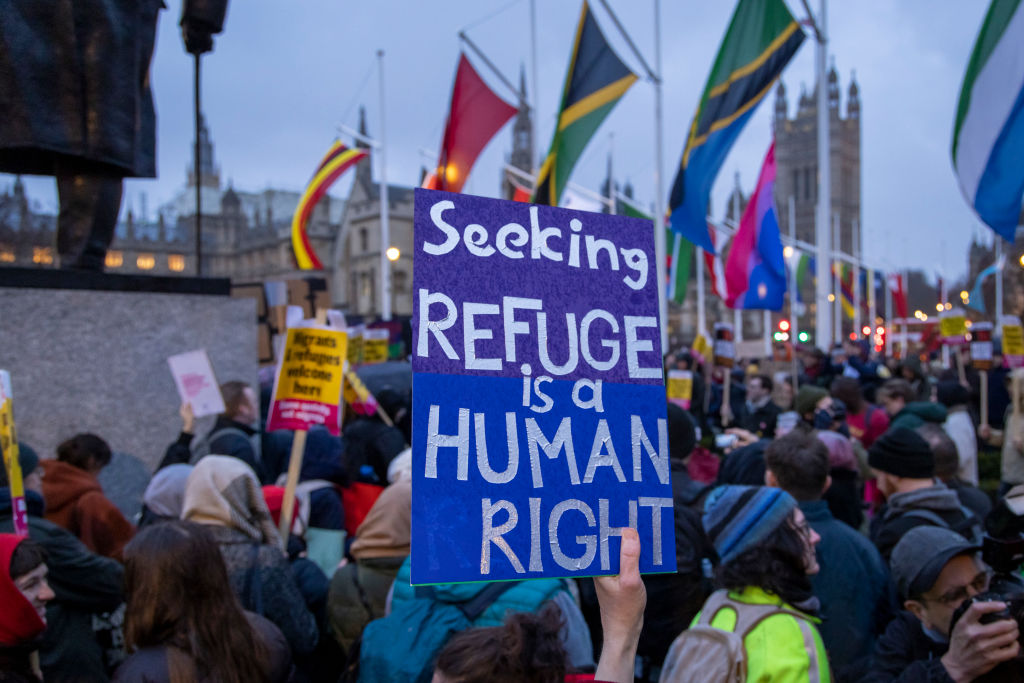
In the end, Michael and his fellow asylum seekers were rescued from their boat by police. From there they were detained and Michael told officials he wanted to seek asylum.
At the time of writing, he is still waiting on the Home Office to decide whether he will be granted refugee status. He’s living in a safe house and is studying at college while his application is assessed.
Michael said he feels “stressed” on a daily basis, as he doesn’t know if the government will try to send him back to his home country.
He also lives in fear of being sent to a “safe” third country like Rwanda, which the Home Office has struck a deal with. Homosexuality is not criminalised in Rwanda, but the UK government’s own website admits that LGBTQ+ people can experience “discrimination and abuse” there due to harsh public attitudes.
His stress been compounded by the Illegal Migration Bill. If passed, the legislation will create a clear divide between those who arrive via pre-approved “legal” routes and those who undertake sometimes dangerous journeys to safety.
“I get frustrated because I don’t feel as if any differentiation should be given to whether someone came by boat or came the legal way. It doesn’t change the fact that they’re running away from certain things and that they’re seeking solace in this country,” Michael says.
He is now worried that the bill could affect his own asylum claim because he arrived in a way the government has deemed “illegal”.
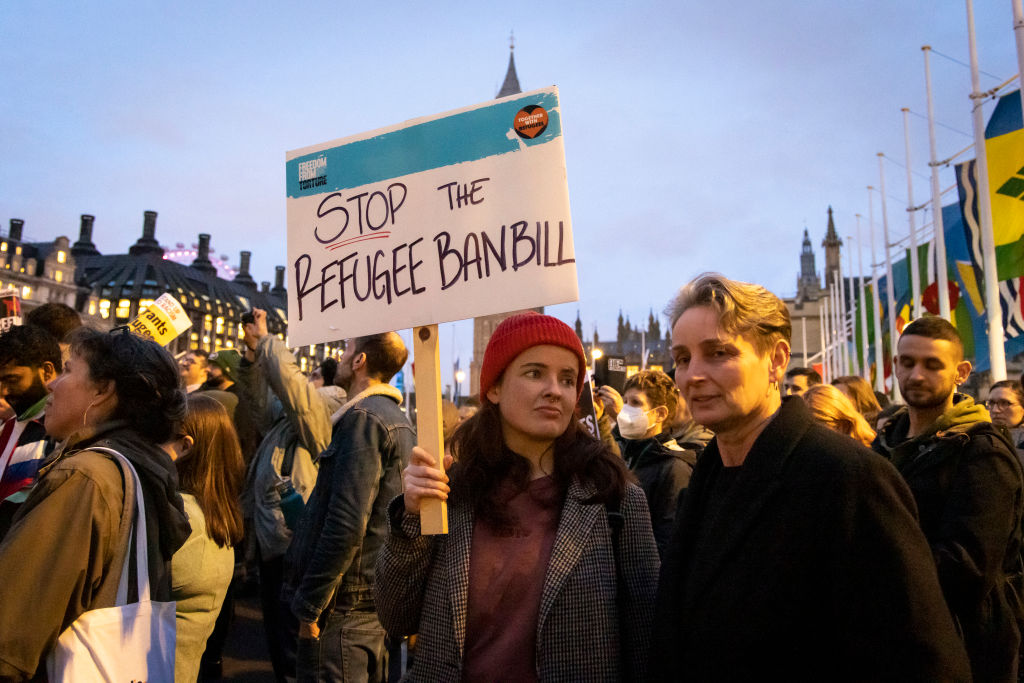
When asked what his message for the government is, Michael says: “I wish they could have mercy and an understanding that ideally, if I wasn’t running away from the situation I found myself in, I wouldn’t have arrived in the way I arrived.
“Just because I arrived in the way I arrived, I don’t feel it justifies being sent back and someone not listening to the issues around why I had to seek asylum.”
Illegal Migration Bill could break international law
The Illegal Migration Bill has faced fierce opposition from politicians across the political spectrum, including from Tory MPs Caroline Nokes and Chris Skidmore.
It has also been the subject of resounding criticism from asylum advocacy groups, who have warned that it could jeopardise the safety of people seeking asylum, including those who are LGBTQ+.
Home secretary Suella Braverman has admitted the bill might be “incompatible” with the European Convention on Human Rights. Nonetheless, it passed its second reading on Monday (13 March), and now goes to committee stage.
Micro Rainbow, a charity that works with LGBTQ+ people seeking asylum, told PinkNews that the bill is “at once cruel and unworkable”.
“It is effectively a ban on seeking asylum and seeks to punish people who are fleeing war and persecution,” Sebastian Rocca, CEO at Micro Rainbow, said.
“It saddens and angers us that the focus of this new legislation seems to be on how people come to the UK, not ‘why’.
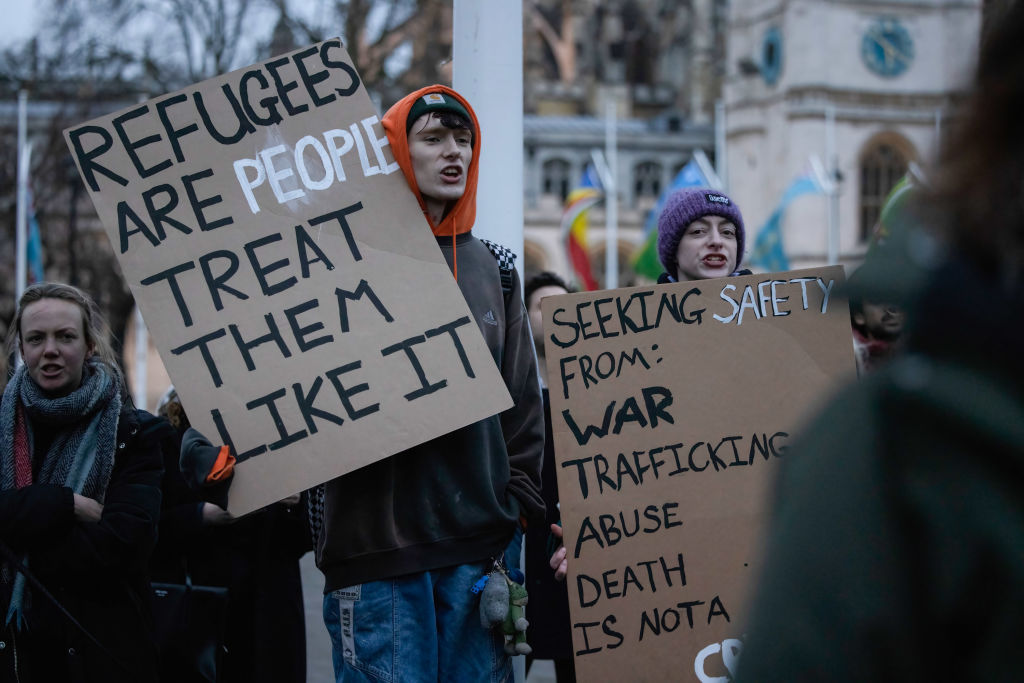
“For many of our beneficiaries, LGBTQI people fleeing persecution, claiming asylum in the UK is their only lifeline.
“Many reach the UK through ‘illegal’ routes, the only ones available to them. This new bill will do little to prevent people like Michael risking his life to find safety. Instead, it will condemn traumatised people to a state of misery without a fair hearing.
“This bill also contributes to creating an environment without humanity and compassion, a type of society that most of the UK do not want.”
When approached for comment, a Home Office spokesperson said: “No-one should be persecuted because of their sexuality or gender identity, and the UK can be rightly proud of its record in providing protection to individuals fleeing persecution based on their sexual orientation or gender identity.
“People should claim asylum in the first safe country they reach – this is the fastest route to safety. Decisions for relocation to Rwanda will be taken on a case-by-case basis and nobody will be relocated if it is unsafe or inappropriate for them.”
How did this story make you feel?

